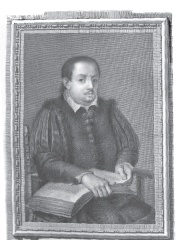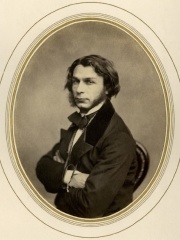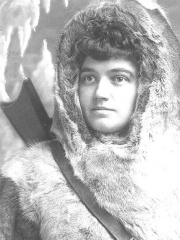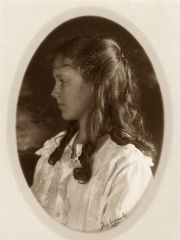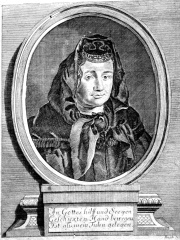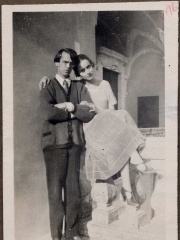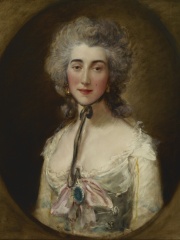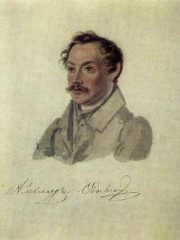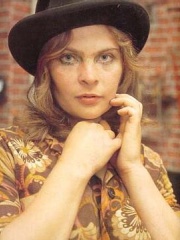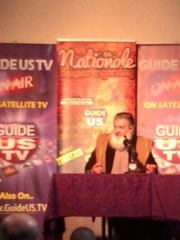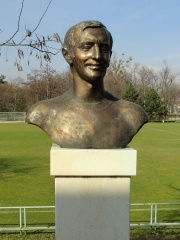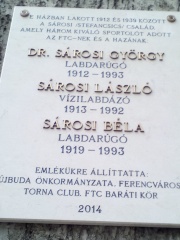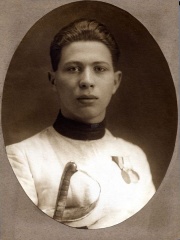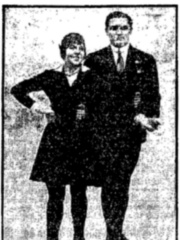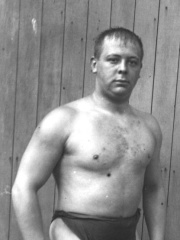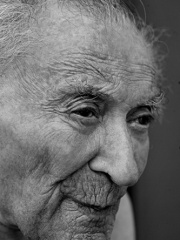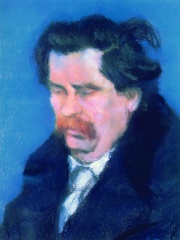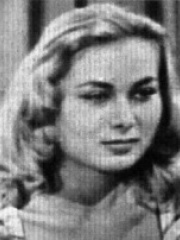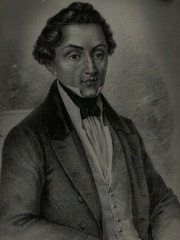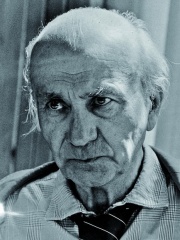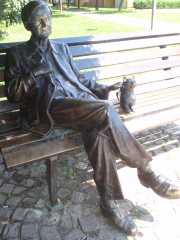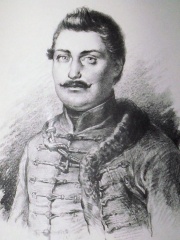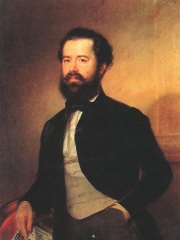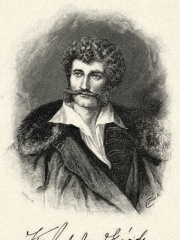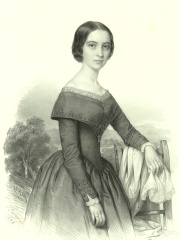WRITER
Joe Eszterhas
1944 - Today

 Joe Eszterhas
Joe Eszterhas
József Antal Eszterhás (Hungarian: [ˈjoːʒɛf ɒntɒl ˈɛstɛrhaːʃ]; born November 23, 1944), credited as Joe Eszterhas, is a Hungarian-American writer. Born in Hungary, he grew up in Cleveland, Ohio, in the United States. After an early career as a journalist and editor, he entered the film industry. His first screenwriting credit was for the film F.I.S.T. (1978). Read more on Wikipedia
His biography is available in 16 different languages on Wikipedia. Joe Eszterhas is the 4,442nd most popular writer (up from 5,137th in 2024), the 522nd most popular biography from Hungary (up from 576th in 2019) and the 52nd most popular Hungarian Writer.
Memorability Metrics
Page views of Joe Eszterhas by language
Among WRITERS
Among writers, Joe Eszterhas ranks 4,442 out of 7,302. Before him are Ippolito Nievo, Vicente Espinel, Dmitry Grigorovich, Kathy Acker, Josephine Diebitsch Peary, and Anne Morrow Lindbergh. After him are Justine Siegemund, Nicholas Pileggi, Yōko Ogawa, Vladislav Khodasevich, Grace Elliott, and Alexander Odoevsky.
Most Popular Writers in Wikipedia
Go to all RankingsIppolito Nievo
1831 - 1861
HPI: 56.96
Rank: 4,436
Vicente Espinel
1550 - 1624
HPI: 56.96
Rank: 4,437
Dmitry Grigorovich
1822 - 1900
HPI: 56.96
Rank: 4,438
Kathy Acker
1947 - 1997
HPI: 56.95
Rank: 4,439
Josephine Diebitsch Peary
1863 - 1955
HPI: 56.95
Rank: 4,440
Anne Morrow Lindbergh
1906 - 2001
HPI: 56.94
Rank: 4,441
Joe Eszterhas
1944 - Present
HPI: 56.94
Rank: 4,442
Justine Siegemund
1636 - 1705
HPI: 56.94
Rank: 4,443
Nicholas Pileggi
1933 - Present
HPI: 56.93
Rank: 4,444
Yōko Ogawa
1962 - Present
HPI: 56.93
Rank: 4,445
Vladislav Khodasevich
1886 - 1939
HPI: 56.93
Rank: 4,446
Grace Elliott
1754 - 1823
HPI: 56.93
Rank: 4,447
Alexander Odoevsky
1802 - 1839
HPI: 56.93
Rank: 4,448
Contemporaries
Among people born in 1944, Joe Eszterhas ranks 451. Before him are Bodil Joensen, Jan Olsson, Yusuf Estes, Robert Barro, Roger Rees, and Ivan Ćurković. After him are Vladimir Spivakov, Peter Dietrich, Fausta Morganti, Uschi Glas, Sherry Lansing, and Dominique Lavanant.
Others Born in 1944
Go to all RankingsBodil Joensen
PORNOGRAPHIC ACTOR
1944 - 1985
HPI: 57.21
Rank: 445
Jan Olsson
SOCCER PLAYER
1944 - 2023
HPI: 57.15
Rank: 446
Yusuf Estes
RELIGIOUS FIGURE
1944 - Present
HPI: 57.04
Rank: 447
Robert Barro
ECONOMIST
1944 - Present
HPI: 56.99
Rank: 448
Roger Rees
ACTOR
1944 - 2015
HPI: 56.96
Rank: 449
Ivan Ćurković
SOCCER PLAYER
1944 - Present
HPI: 56.94
Rank: 450
Joe Eszterhas
WRITER
1944 - Present
HPI: 56.94
Rank: 451
Vladimir Spivakov
MUSICIAN
1944 - Present
HPI: 56.94
Rank: 452
Peter Dietrich
SOCCER PLAYER
1944 - Present
HPI: 56.93
Rank: 453
Fausta Morganti
POLITICIAN
1944 - 2021
HPI: 56.91
Rank: 454
Uschi Glas
ACTOR
1944 - Present
HPI: 56.89
Rank: 455
Sherry Lansing
BUSINESSPERSON
1944 - Present
HPI: 56.88
Rank: 456
Dominique Lavanant
ACTOR
1944 - Present
HPI: 56.85
Rank: 457
In Hungary
Among people born in Hungary, Joe Eszterhas ranks 522 out of 1,077. Before him are István Juhász (1945), Richard Thompson (null), Béla Sárosi (1919), Elizabeth Roboz Einstein (1904), Ferenc Sas (1915), and Attila Petschauer (1904). After him are Ervin Mészáros (1877), Emília Rotter (1906), Imre Zachár (1890), Zoltán Magyar (1953), Gizella Farkas (1925), and Ferenc Karinthy (1921).
Others born in Hungary
Go to all RankingsIstván Juhász
SOCCER PLAYER
1945 - Present
HPI: 57.07
Rank: 516
Richard Thompson
ATHLETE
HPI: 57.04
Rank: 517
Béla Sárosi
SOCCER PLAYER
1919 - 1993
HPI: 57.00
Rank: 518
Elizabeth Roboz Einstein
CHEMIST
1904 - 1995
HPI: 56.99
Rank: 519
Ferenc Sas
SOCCER PLAYER
1915 - 1988
HPI: 56.95
Rank: 520
Attila Petschauer
FENCER
1904 - 1943
HPI: 56.94
Rank: 521
Joe Eszterhas
WRITER
1944 - Present
HPI: 56.94
Rank: 522
Ervin Mészáros
ATHLETE
1877 - 1940
HPI: 56.92
Rank: 523
Emília Rotter
SKATER
1906 - 2003
HPI: 56.90
Rank: 524
Imre Zachár
SWIMMER
1890 - 1954
HPI: 56.87
Rank: 525
Zoltán Magyar
GYMNAST
1953 - Present
HPI: 56.86
Rank: 526
Gizella Farkas
TABLE TENNIS PLAYER
1925 - 1996
HPI: 56.83
Rank: 527
Ferenc Karinthy
WRITER
1921 - 1992
HPI: 56.83
Rank: 528
Among WRITERS In Hungary
Among writers born in Hungary, Joe Eszterhas ranks 52. Before him are Ferenc Fejtő (1909), Zsigmond Móricz (1879), Edith Bruck (1931), Yuriy Venelin (1802), Gyula Illyés (1902), and Sándor Weöres (1913). After him are Ferenc Karinthy (1921), József Katona (1791), Jenő Rejtő (1905), Bertalan Szemere (1812), Károly Kisfaludy (1788), and Júlia Szendrey (1828).
Ferenc Fejtő
1909 - 2008
HPI: 58.01
Rank: 46
Zsigmond Móricz
1879 - 1942
HPI: 57.88
Rank: 47
Edith Bruck
1931 - Present
HPI: 57.84
Rank: 48
Yuriy Venelin
1802 - 1839
HPI: 57.81
Rank: 49
Gyula Illyés
1902 - 1983
HPI: 57.55
Rank: 50
Sándor Weöres
1913 - 1989
HPI: 57.34
Rank: 51
Joe Eszterhas
1944 - Present
HPI: 56.94
Rank: 52
Ferenc Karinthy
1921 - 1992
HPI: 56.83
Rank: 53
József Katona
1791 - 1830
HPI: 56.52
Rank: 54
Jenő Rejtő
1905 - 1943
HPI: 56.22
Rank: 55
Bertalan Szemere
1812 - 1869
HPI: 55.47
Rank: 56
Károly Kisfaludy
1788 - 1830
HPI: 55.46
Rank: 57
Júlia Szendrey
1828 - 1868
HPI: 55.44
Rank: 58

